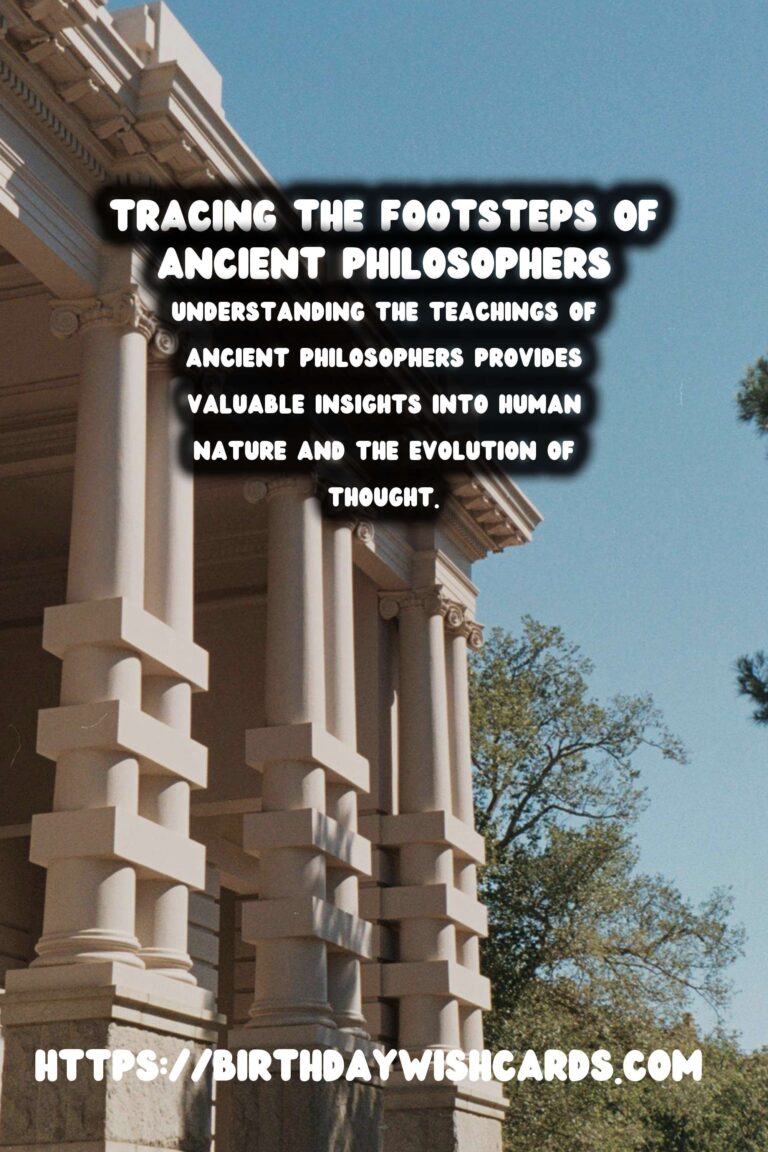
The pursuit of wisdom and knowledge has been a fundamental aspect of human civilization since time immemorial. Ancient philosophers have laid the groundwork for modern thought through their teachings and insights. This blog post embarks on a journey to trace the teachings of these eminent philosophers and understand their impact on contemporary society.
n
The Foundations of Western Philosophy
n
Western philosophy finds its roots in the wisdom of Ancient Greece. Pioneers like Socrates, Plato, and Aristotle have revolutionized human thought. Socrates introduced the dialectical method of inquiry, emphasizing the importance of questioning to achieve truth. Plato, Socrates’ student, further expanded on these ideas through his writings on metaphysics, ethics, and politics. His allegory of the cave continues to be a profound metaphor for human perception and ignorance.
n
Aristotle, a student of Plato, contributed significantly to diverse fields such as logic, biology, and ethics. His empirical approach became the cornerstone of scientific methodology, guiding intellectual exploration for centuries.
n
Eastern Philosophical Wisdom
n
While Western philosophers were shaping their world, Eastern philosophies were being formed with equal vigor and depth. Confucianism, spearheaded by Confucius in ancient China, emphasized morality, societal harmony, and filial piety. His teachings stressed the importance of personal and governmental integrity.
n
Similarly, the philosophy of Taoism, originating with Laozi, introduced the concept of living in harmony with the Tao—meaning the fundamental nature of the universe. Taoist teachings focus on balance, humility, and the natural order of things.
n
Indian Philosophical Enlightenment
n
The Indian subcontinent has been a fertile ground for philosophical inquiry, primarily through schools like Buddhism and Hinduism. Siddhartha Gautama, better known as Buddha, challenged prevailing beliefs and propounded a path to enlightenment based on the Four Noble Truths and the Eightfold Path. His teachings highlight the impermanence of life and the pursuit of mental discipline to achieve Nirvana.
n
Hindu philosophy, with its diverse and rich traditions, offers insights into concepts such as Dharma (duty/ethics), Karma (action and consequence), and Moksha (liberation). The Upanishads and Bhagavad Gita provide a comprehensive guide to life and spirituality, bridging the material and the metaphysical.
n
Influence on Modern Society
n
The teachings of ancient philosophers continue to resonate in various facets of modern life. Educational curriculums still reference Socratic questioning, while policies and governance often reflect Confucian ethical frameworks. The scientific method, heavily influenced by Aristotelian logic, remains a benchmark for inquiry and discovery.
n
Moreover, the mindfulness movement in Western countries borrows extensively from Buddhist principles, illustrating the cross-cultural appreciation and application of ancient wisdom.
n
Conclusion
n
Understanding the teachings of ancient philosophers provides valuable insights into human nature and the evolution of thought. As we delve deeper into their philosophies, we not only honor their wisdom but also employ it in addressing the complexities of modern life.
n
The legacy of these philosophers endures, guiding us toward a more reflective, informed, and harmonious existence.
The pursuit of wisdom and knowledge has been a fundamental aspect of human civilization since time immemorial. Understanding the teachings of ancient philosophers provides valuable insights into human nature and the evolution of thought.
#Philosophy #AncientWisdom

